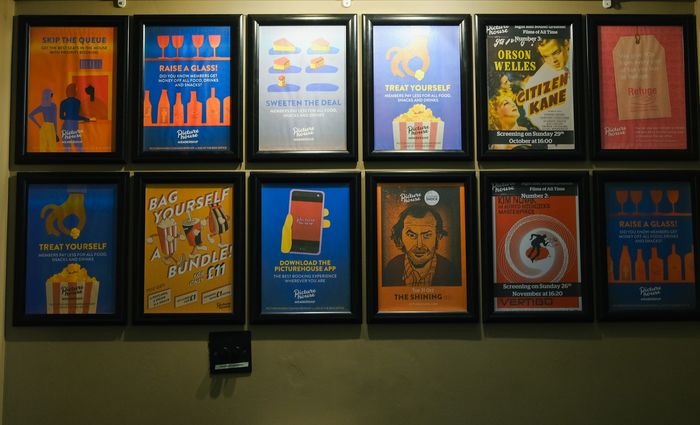Redline and Death Race 2000: three hours of racing to the death
Abby Reeves plans a movie night of cars, dystopia and sex appeal

Thanks to the skyrocketing popularity of F1 racing, car films are more prolifically mainstream than ever before, and for good reason. Who doesn’t love the high-octane adrenaline of a treacherous race? This form of escapism becomes extreme in the two films chosen for today’s double feature: Redline (2009) and Death Race 2000 (1975).
“It’s a life-long truism that cars equals sex appeal”
Redline, an animated film directed by Takeshi Koike, takes this premise to planetary proportions, riffing off the pod racing scene in Star Wars to showcase a highly illegal, interstellar car race. Readers may be shocked to learn that the concept of a dystopian world in which a totalitarian regime (America in the near-distant future) creates a game of death and spectacle to placate the general population had been lingering in the popular imagination long before The Hunger Games. Indeed, the 1970s saw a spate of such films, with premises ranging from the silly (Rollerball – men on roller skates and motorbikes fighting to the death) to cult classics embodying camp such as Death Race 2000. This film’s specific brand of dystopia incorporates a car race during which mowing down pedestrians earns you points – the older, the better. Such films transport us away from the everyday mundanity of driving, characterised by stalling in traffic, providing a glimpse into the elusively stylish world of professional racers, populated by cartoonish, overblown variations of people who seem destined to entertain.
It’s a life-long truism that cars equals sex appeal (see Titane and Crash for previous cinematic affirmations). There is an unavoidably erotic association between the throbbing engine of a sleek racecar and the masculine phallus. The protagonists of both films seek to embody this carnal coolness, emboldened by the automobile by their side. Redline’s JP is an underdog in the car world, entangled in a corrupt gambling scheme. He struts onto the scene sporting a signature leather jacket, his protruding black quiff emanating a concoction of Elvis Presley and an extra in Grease. He oozes style, in marked contrast to the heralded protagonist of Death Race – a mysterious man named Frankenstein whose hordes of fans worship him because of his connection to the anonymous “President”. He fails to be anywhere near as cool as JP – the 70s did not age well in this respect – appearing in what seems to be a gimp suit. Sylvester Stallone plays Machine Gun Kelly, a gross parody of himself who constantly chews gum alongside his female navigator, the white-fur smothered Poodle. Stallone projects far more sex appeal than the latex-clad Frankenstein, the bonnet of his car sporting a leering machete to skewer unsuspecting victims.
“With all the subtlety of a sledgehammer, these films take shots at the American imperial machine of patriotism”
With all the subtlety of a sledgehammer, these films take shots at the American imperial machine of patriotism. Both films feature menacing figures called “The President”. In Redline, Mr President is the authoritarian ruler of an entire planet, hell-bent on his own version of keeping the peace. This unsurprisingly results in mass violence as his attempts to suppress the inter-terrestrial car race unleash a world-endangering bio-weapon previously hidden under the Earth’s crust. Redline situates itself within a long genealogy of Japanese films which criticise America for proclaiming itself “keeper of the peace” whilst wielding – and using fairly indiscriminately – nuclear weaponry.
Out of the midst of the anti-establishment movement of the 1970s came Death Race 2000. The film begins with trumpets blaring a rendition of “The Star-Spangled Banner”, while red, white and blue balloons are unleashed into the sky, kicking off the race. This die-hard patriotism is utilised to excuse the game’s bloody premise of killing pedestrians. Such races are designed to provide entertainment for the masses whilst the President gets on with fighting the country’s greatest enemy: France. The film concludes with the President’s assassination by hand grenade (a grenade literally embedded in Frankenstein’s hand), and Frankenstein assuming the role of President, immediately outlawing the death race. While peace, or some semblance of it, ultimately triumphs, the commentator of the games gets the final say: “That’s the way we love it: violent, violent, violent!”
Total Length: 186 minutes (3 hours). Redline is a bombardment to the senses, giving you enough adrenaline for Death Race’s often nonsensical, damningly 70s style
Recommended if you like: “Girls and Fast Cars” by The Wombats
 News / Uni to ‘review’ tripos rankings and weekend lectures in undergrad teaching overhaul10 April 2025
News / Uni to ‘review’ tripos rankings and weekend lectures in undergrad teaching overhaul10 April 2025 News / Rowing row continues as Oxford and Cambridge scrap women’s trial race9 April 2025
News / Rowing row continues as Oxford and Cambridge scrap women’s trial race9 April 2025 Comment / Death of the June Event?9 April 2025
Comment / Death of the June Event?9 April 2025 Features / Cambridge: where toxic productivity turns rest into a radical act8 April 2025
Features / Cambridge: where toxic productivity turns rest into a radical act8 April 2025 News / Under 3% of applicants for Cambridge academic jobs are successful7 April 2025
News / Under 3% of applicants for Cambridge academic jobs are successful7 April 2025






